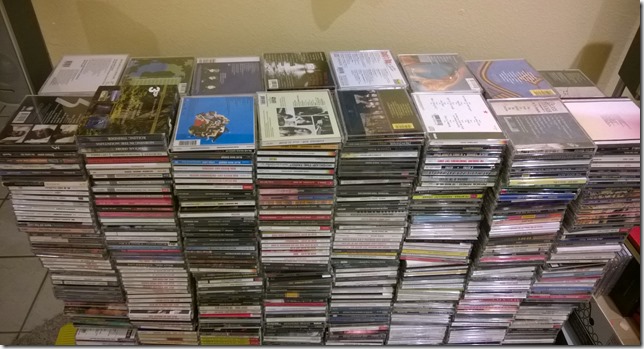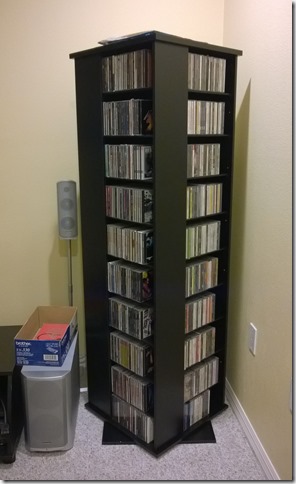I am literally 10 years behind the times. But on the plus side, I’m saving lots of money by doing so.
As I’ve mentioned, I have two new idiot boxes in my house. I still don’t watch a lot of TV, so I needed to find a use for them. The obvious consideration was to get a video game system. On top of the entertainment value, it could work for some social interaction as well. You know, for all the guests I have over…
But what game system to get? I haven’t played video games seriously for 20 years, when the controls became so complicated and all in 360 degree, 3D style (if you want to know precisely when I quit, it was ID Software’s Quake that put me over the edge). So, looking at XBox/PlayStation nonsense was more of a detraction than a motivator. But there exists a game system for people like me, the casual gamer. The Nintendo Wii. Yup, it’s 10 years old now.
I’d played Wii at a friends house only a couple of times. I found it very curious, since it relied on motion input instead of traditional directional controllers. Moreover, the gameplay wasn’t hyper-competitive, just fun. That was right up my alley. So where do you go to buy a 10-yr old game system? To me, it was just like buying a 10 yr old music keyboard or guitar or effect unit – the pawn shop.
I’m definitely no stranger to pawn shops, and I have a pretty good sense as to what to buy and what to avoid there. I had a pretty good feeling about getting a Wii. At the very least, you could look it over for damage and whatnot. So, I made my rounds of the local shops, seeing who had what available in the best condition.
I ended up getting a system and some games on new year’s eve for $52. The next week, I bought some more controllers, some games, and a balance board for $48. So I had a full system for $100. That’s pretty good. When the Wii first came out, it was $250 for the base system, $40 for an extra controller, and $20 for the nunchuk. The balance board was $90 at launch.
And it’s been a good system. It’s fun and doesn’t require a ton of dedication or effort to use. It’s been enough fun that the GF has been considering getting one for her house. So today, I went on the hunt again.
The pawn shops around my workplace have historically been excellent for finding good deals on whatever I’m looking for (or something I wasn’t looking for). Today, with a planned purchase, I wasn’t disappointed. I got a Wii with one controller and nunchuk for $35, plus another controller/nunchuk for $12 – similar to what I spent last time. I figured we could share the balance board for a while. On a whim, I stopped at another pawn shop and was surprised to see a balance board sitting all by itself. Originally $10, it was marked down to $7. That was an immediate cash purchase and out the door. The only thing I regret is not buying the $2 copy of Wii Fit to go along with it. I’ll get that next week for myself.
So now we have Wii’s. Whee.






